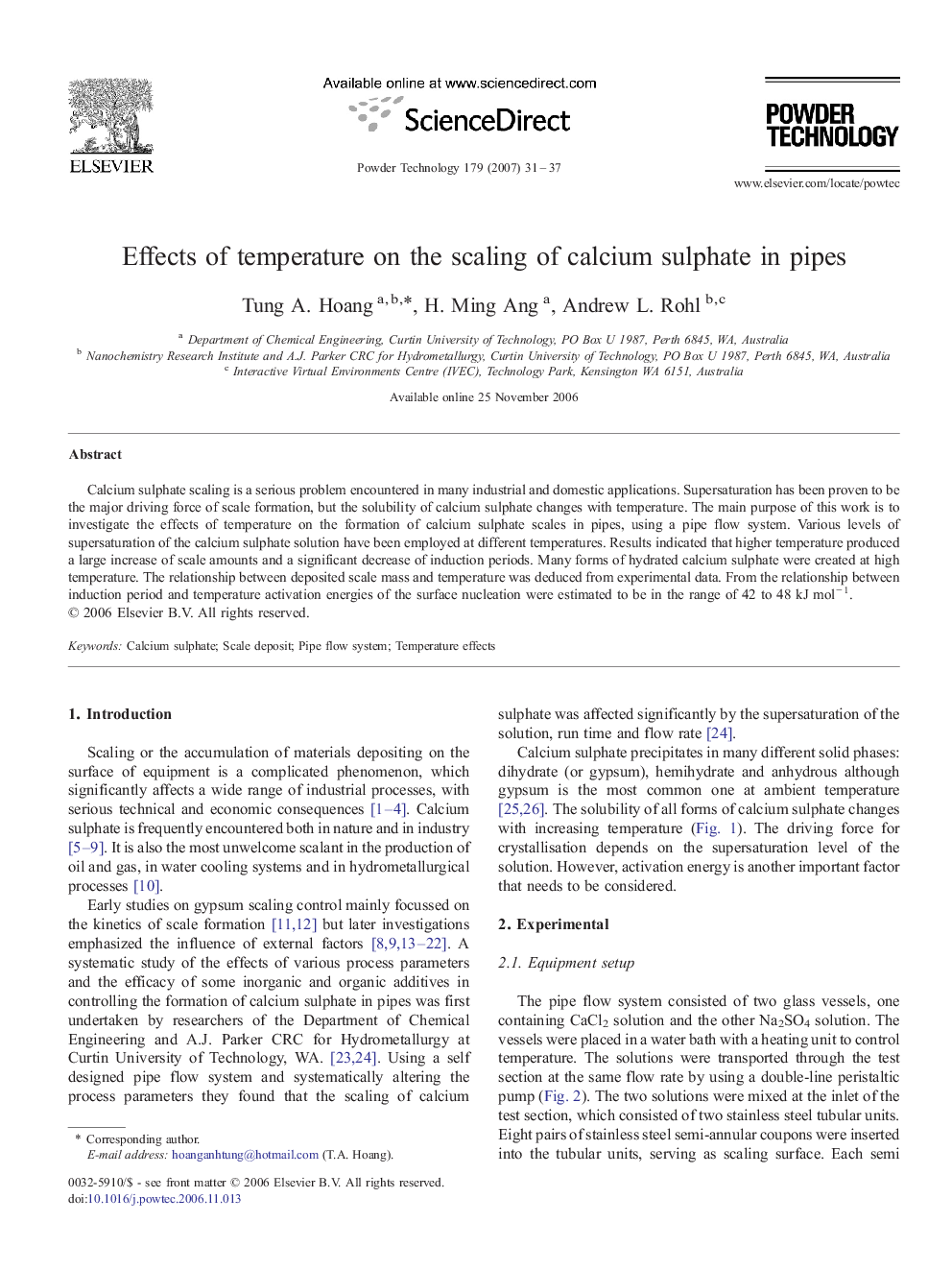| Article ID | Journal | Published Year | Pages | File Type |
|---|---|---|---|---|
| 239023 | Powder Technology | 2007 | 7 Pages |
Calcium sulphate scaling is a serious problem encountered in many industrial and domestic applications. Supersaturation has been proven to be the major driving force of scale formation, but the solubility of calcium sulphate changes with temperature. The main purpose of this work is to investigate the effects of temperature on the formation of calcium sulphate scales in pipes, using a pipe flow system. Various levels of supersaturation of the calcium sulphate solution have been employed at different temperatures. Results indicated that higher temperature produced a large increase of scale amounts and a significant decrease of induction periods. Many forms of hydrated calcium sulphate were created at high temperature. The relationship between deposited scale mass and temperature was deduced from experimental data. From the relationship between induction period and temperature activation energies of the surface nucleation were estimated to be in the range of 42 to 48 kJ mol− 1.
Graphical abstractThe effects of temperature on the formation of calcium sulphate scales in pipes were investigated, using a pipe flow system. Higher temperature produced a large increase of scale amounts and a significant decrease of induction periods. Different crystalline shapes were formed in low and high temperatures. A surface controlled mechanism was confirmed. SEM images of calcium sulphate scale deposited on the pipe walls at 20°C.Figure optionsDownload full-size imageDownload as PowerPoint slide
